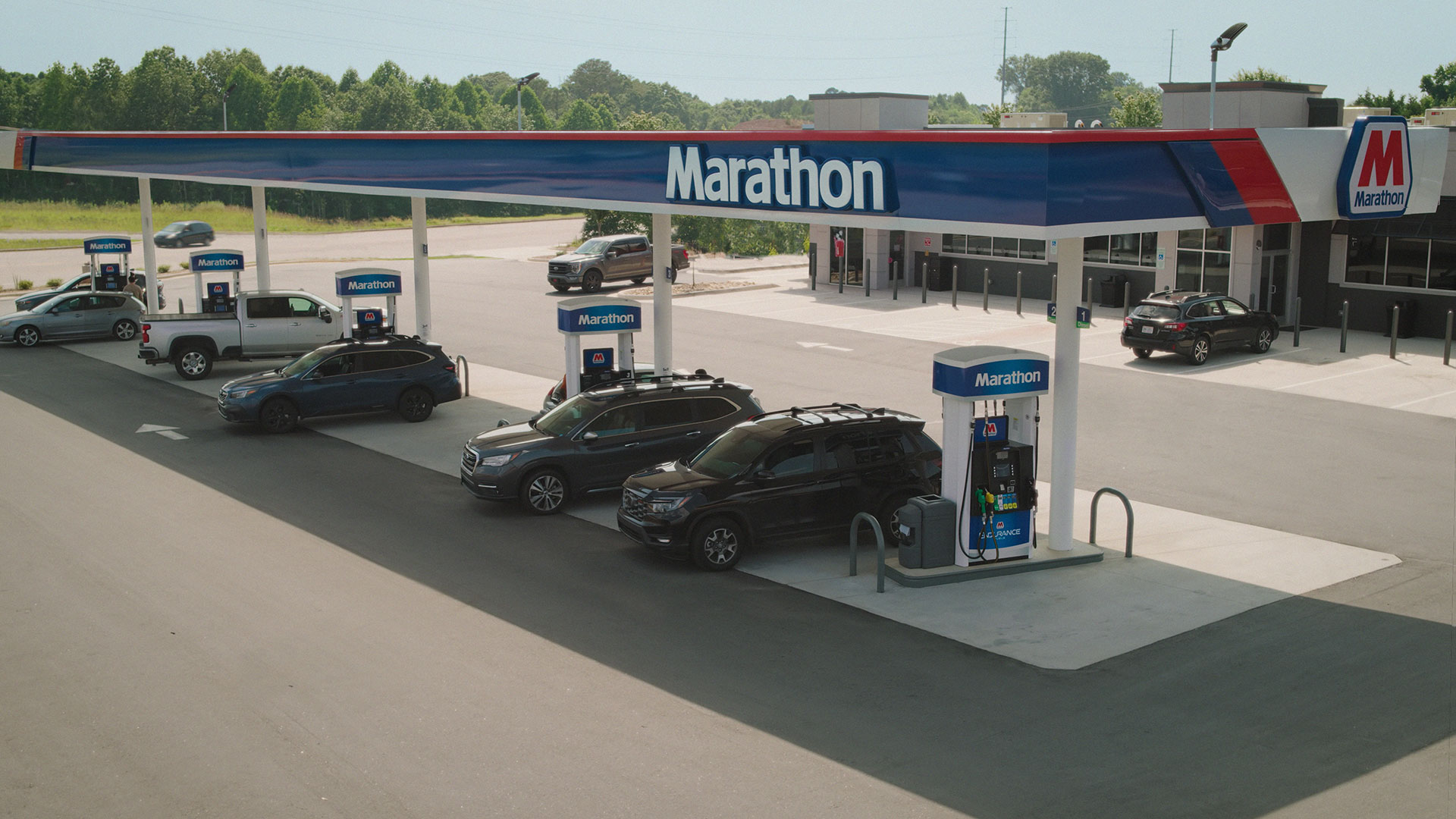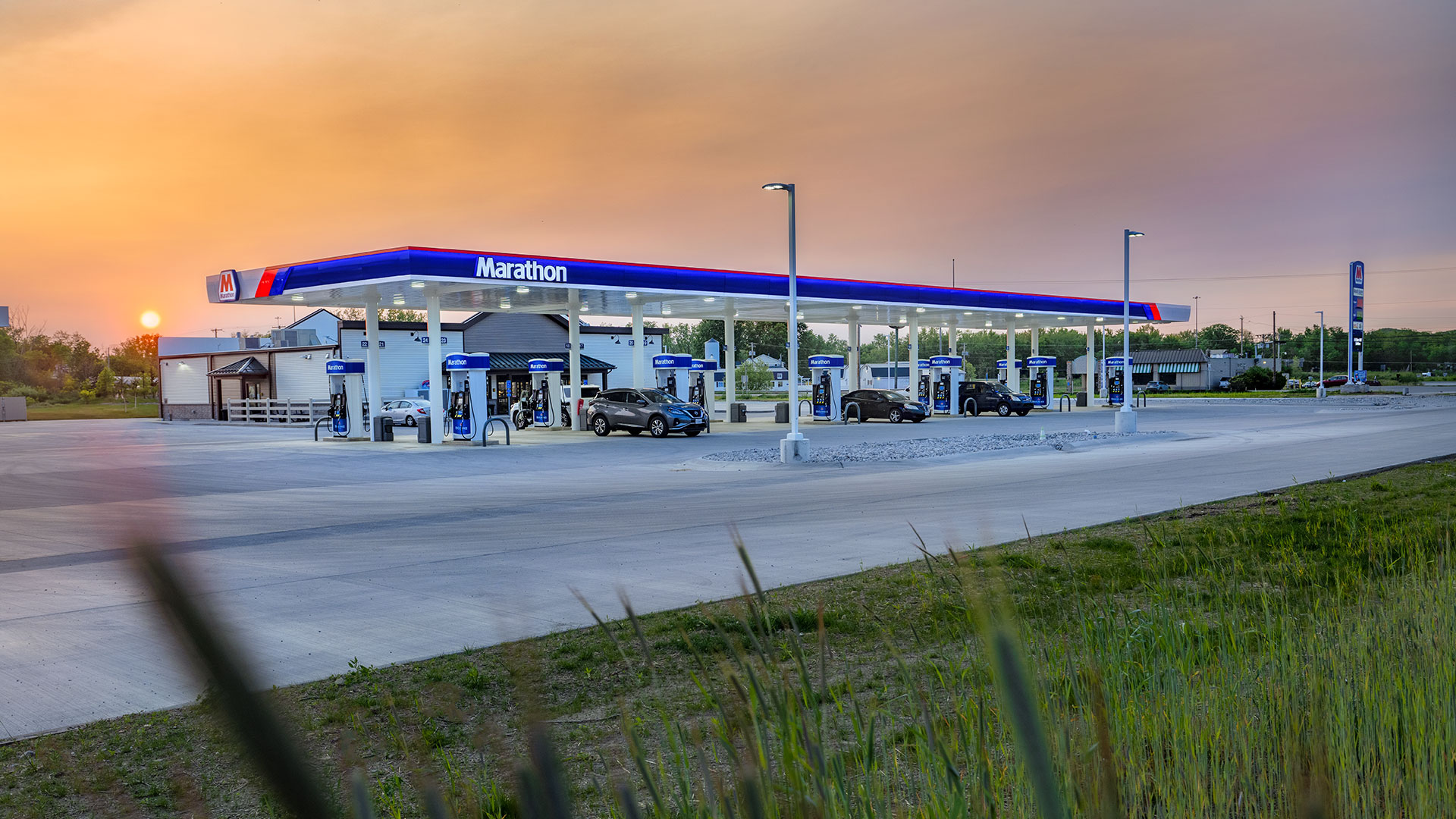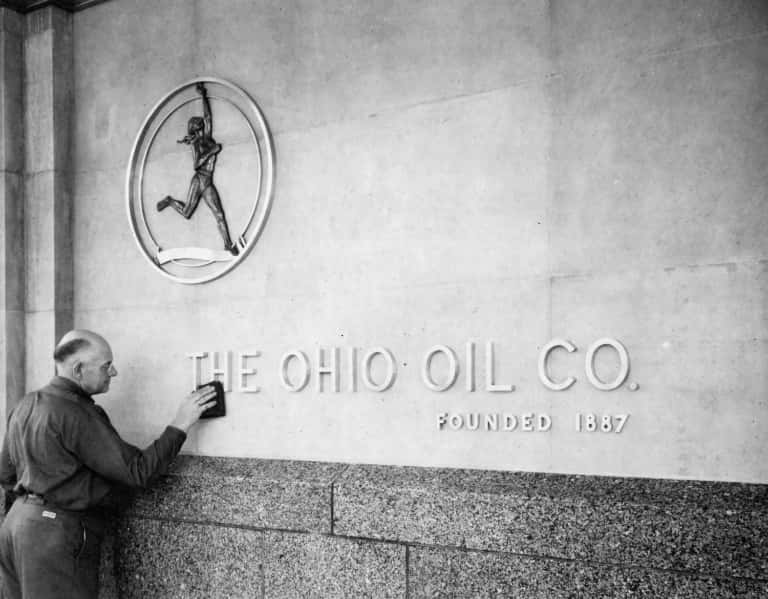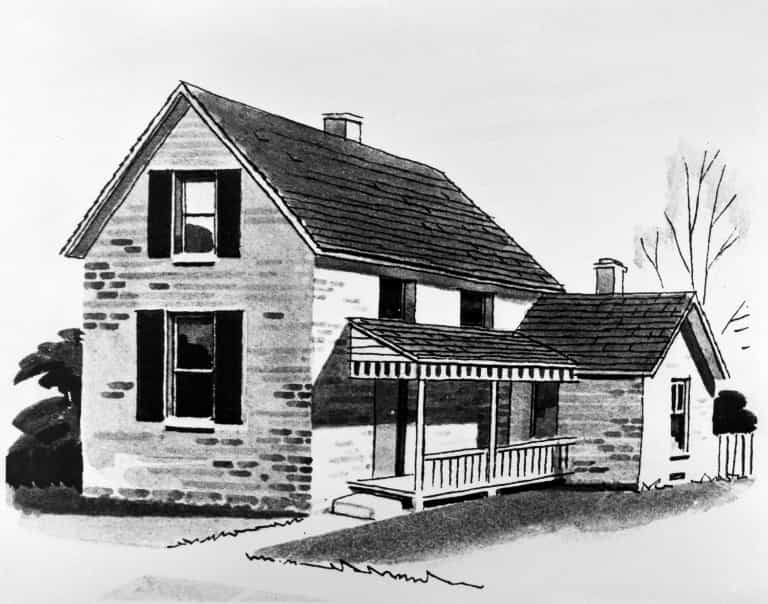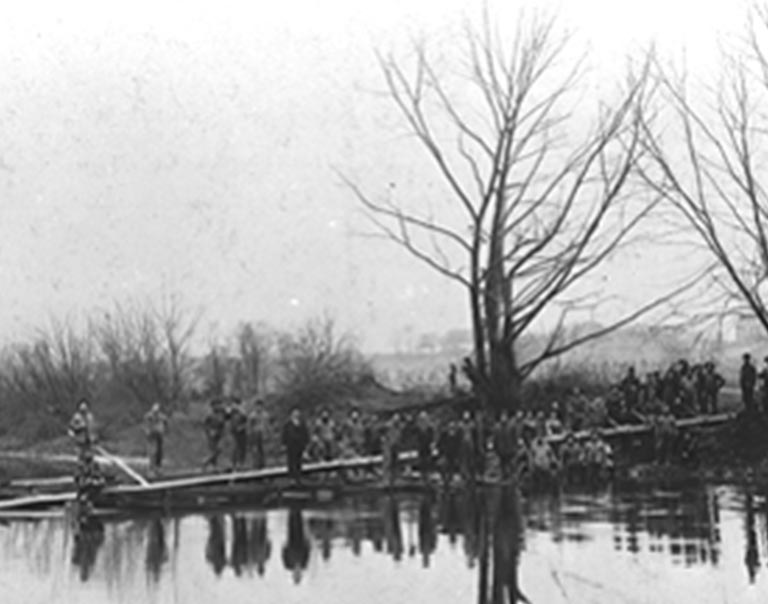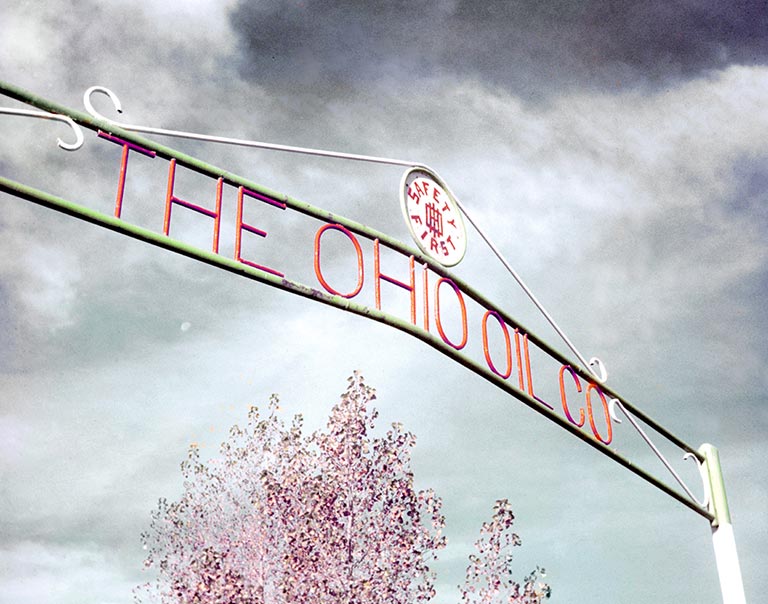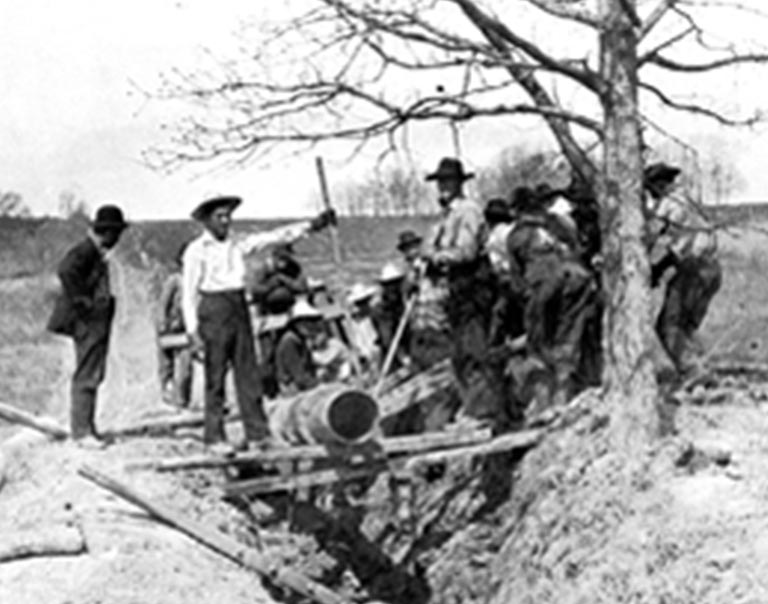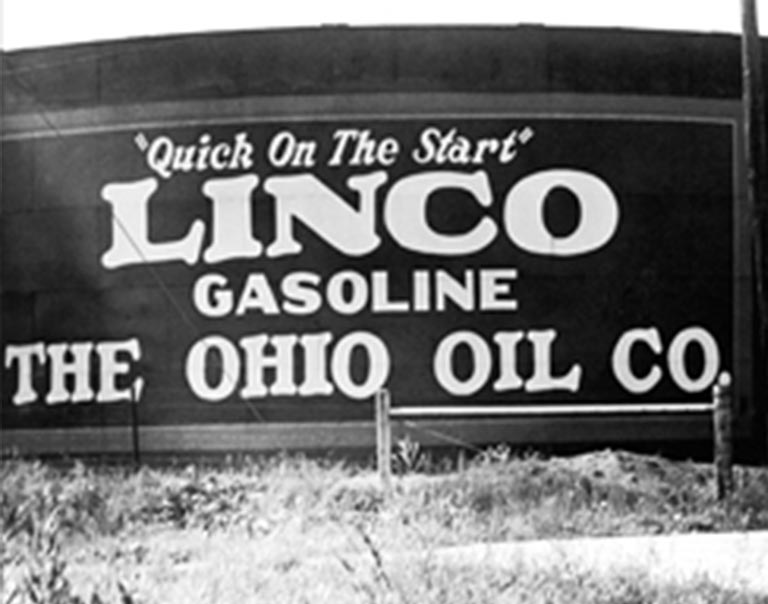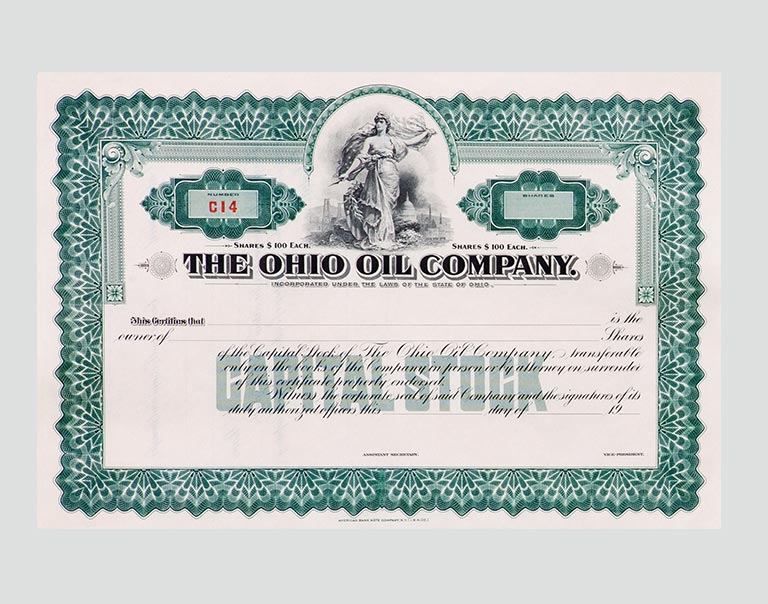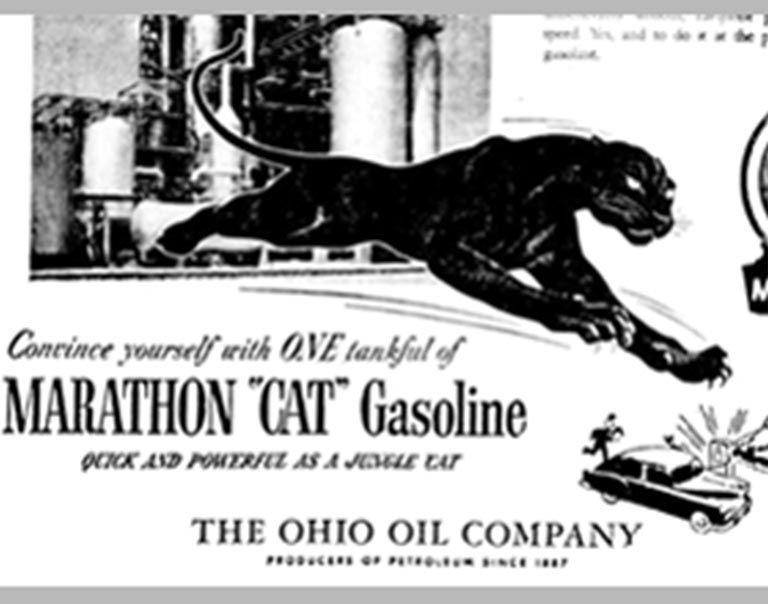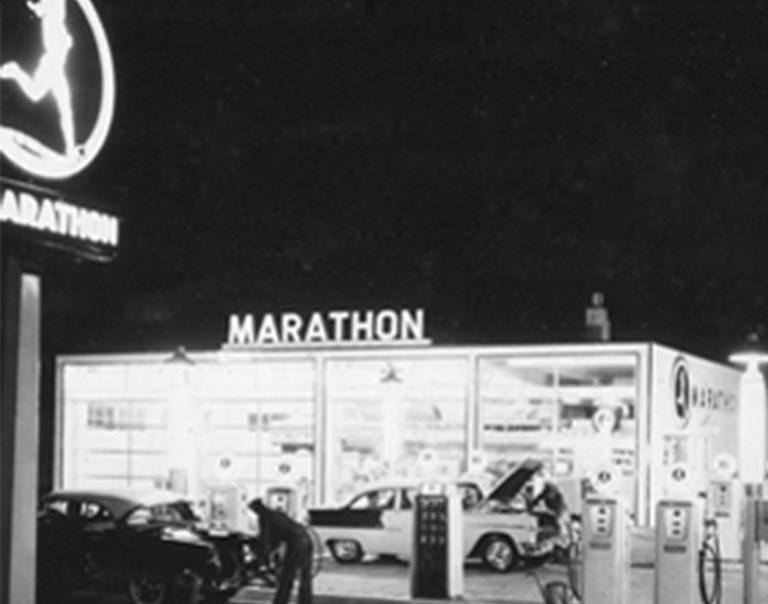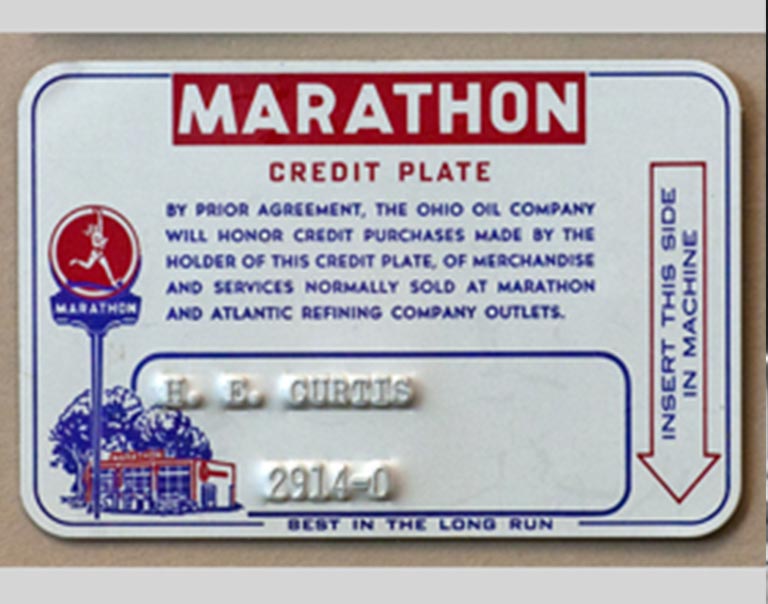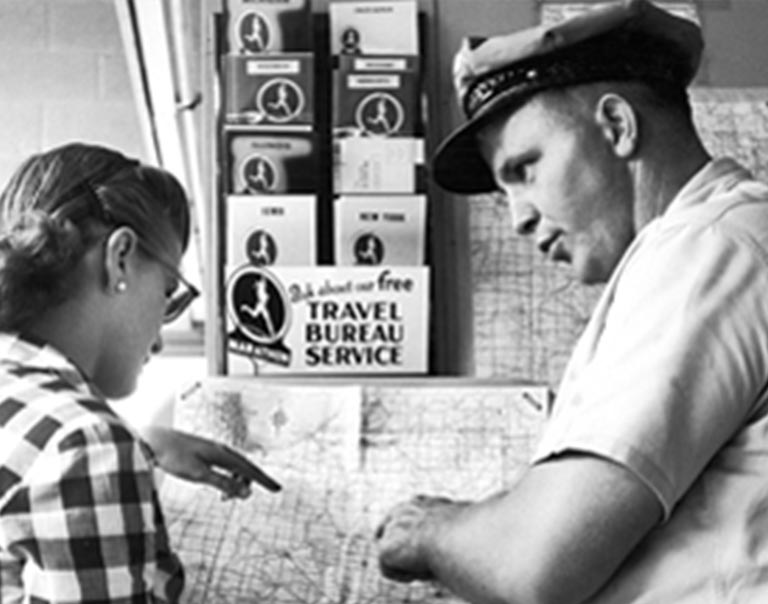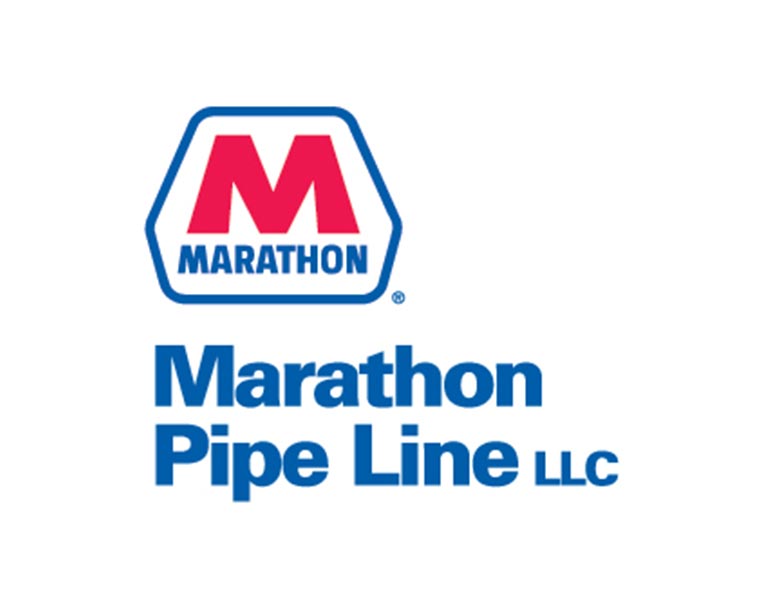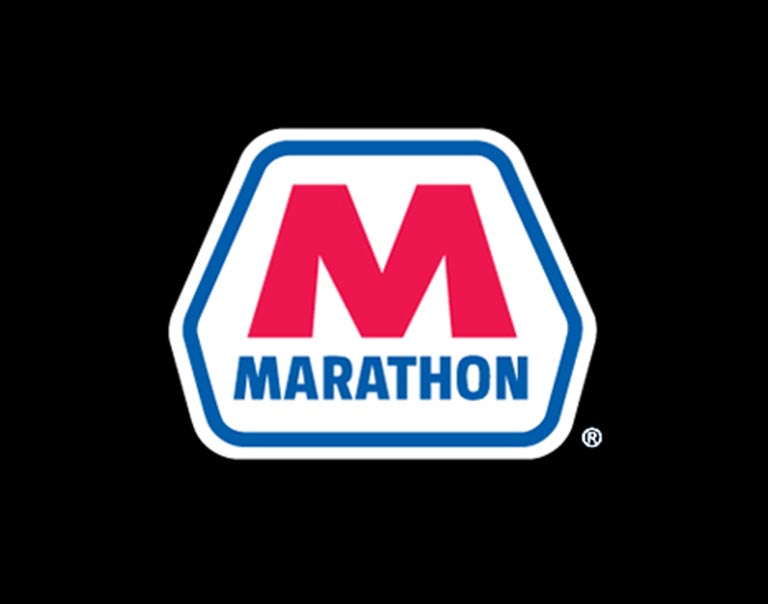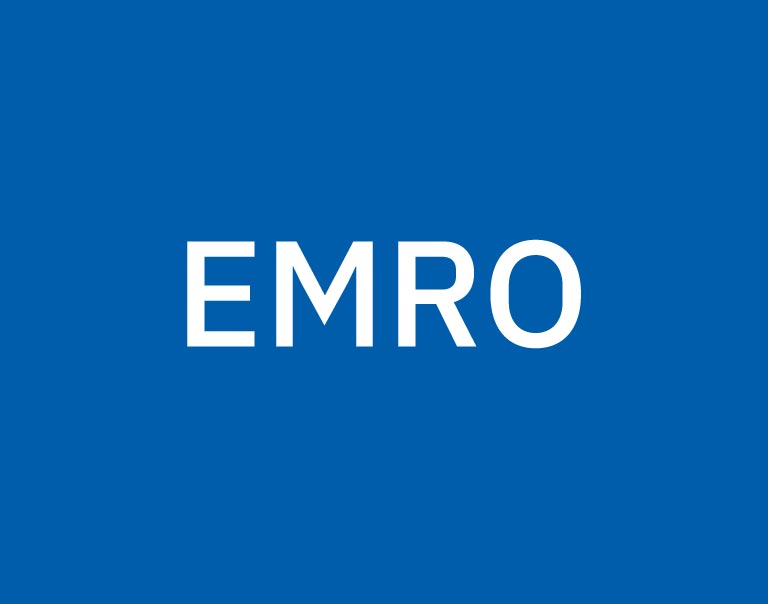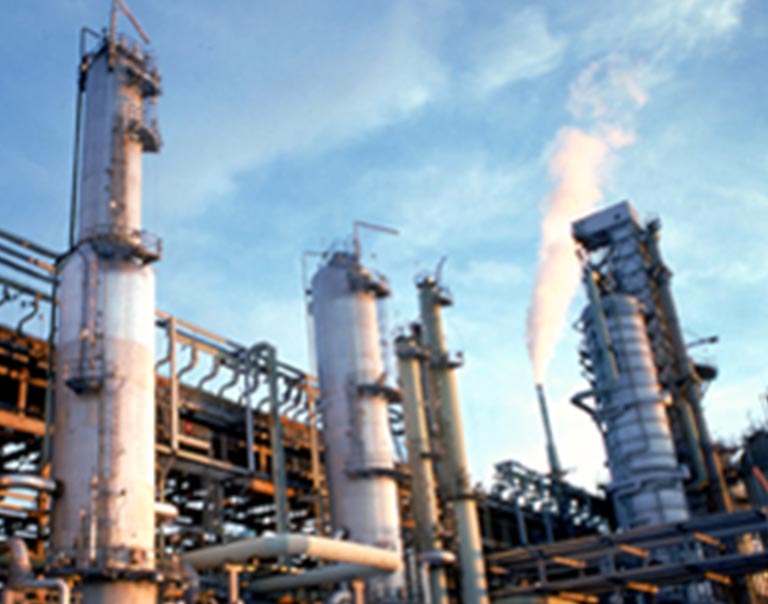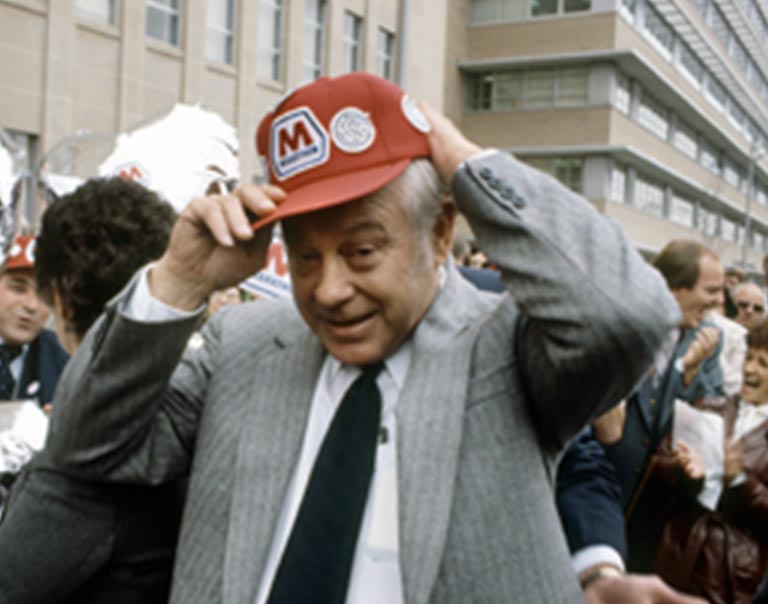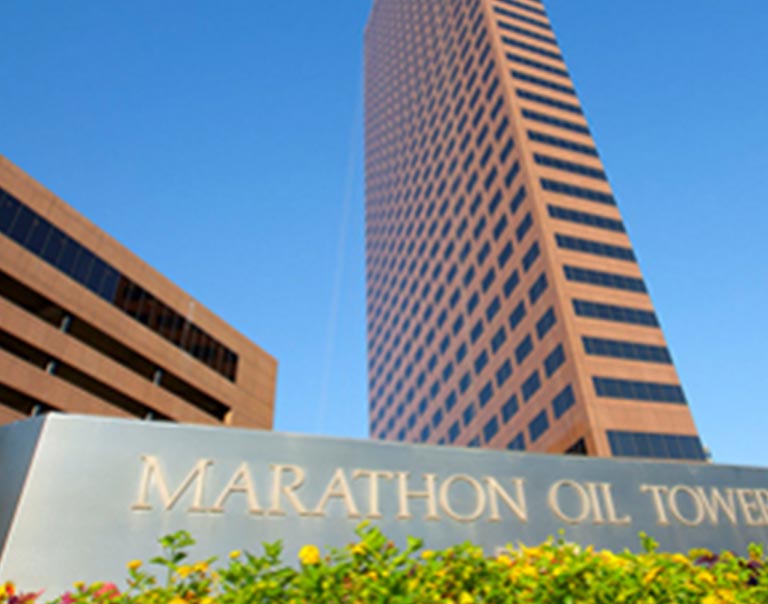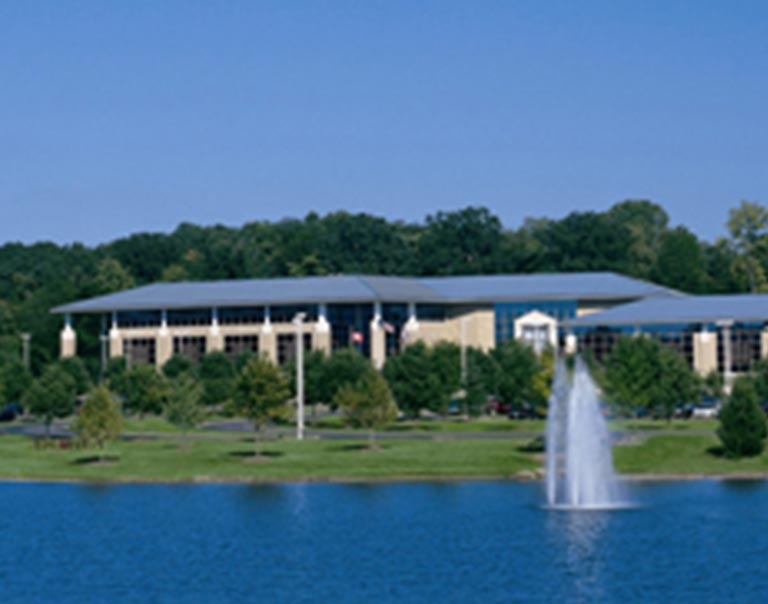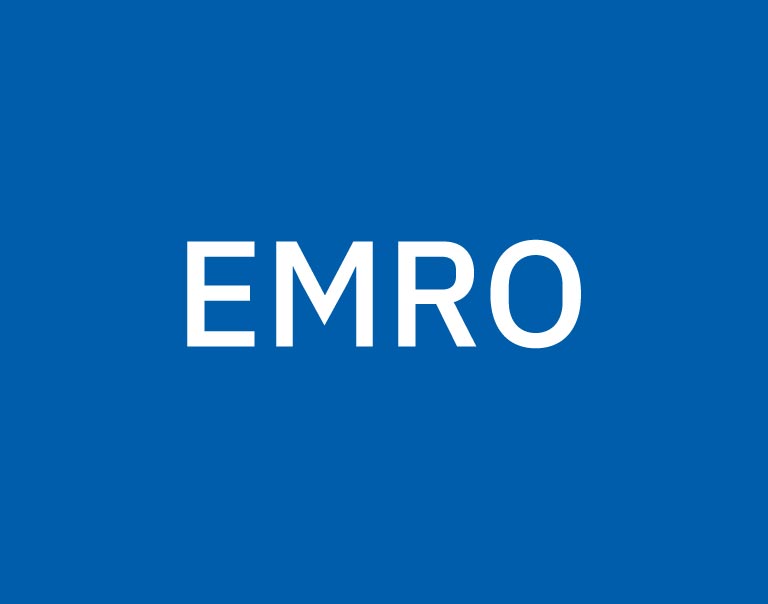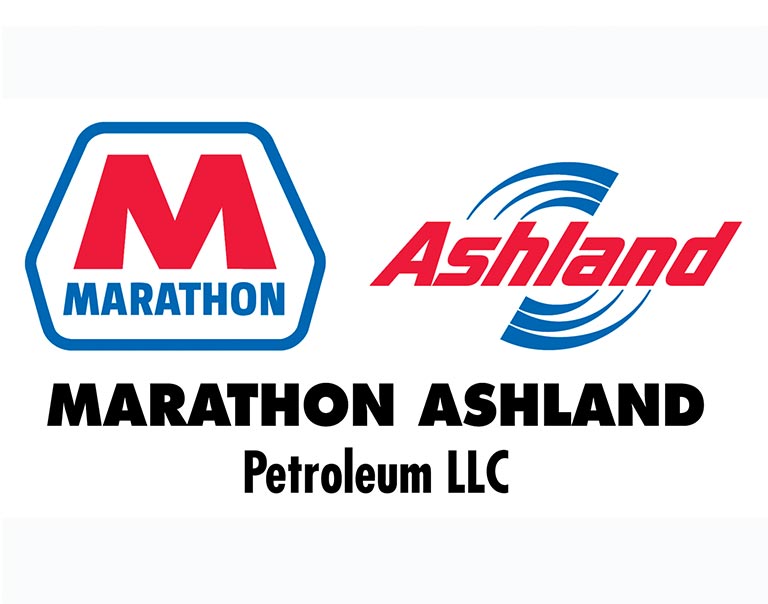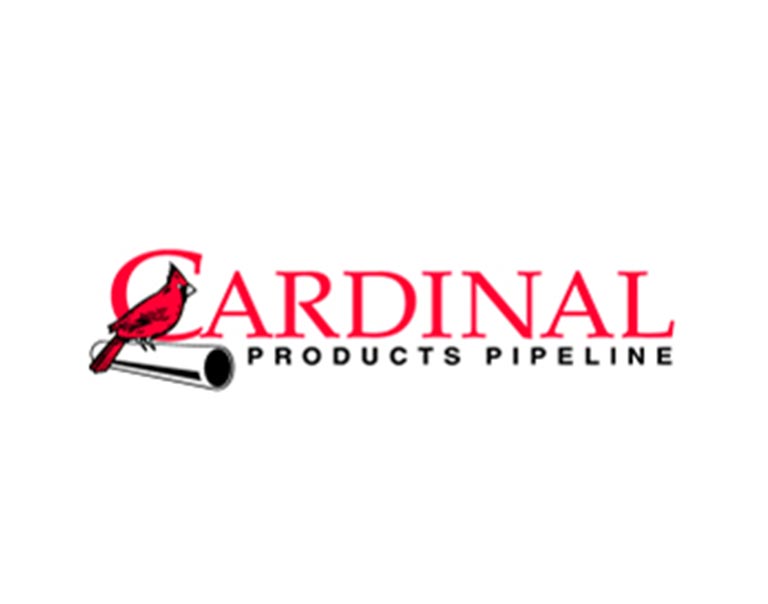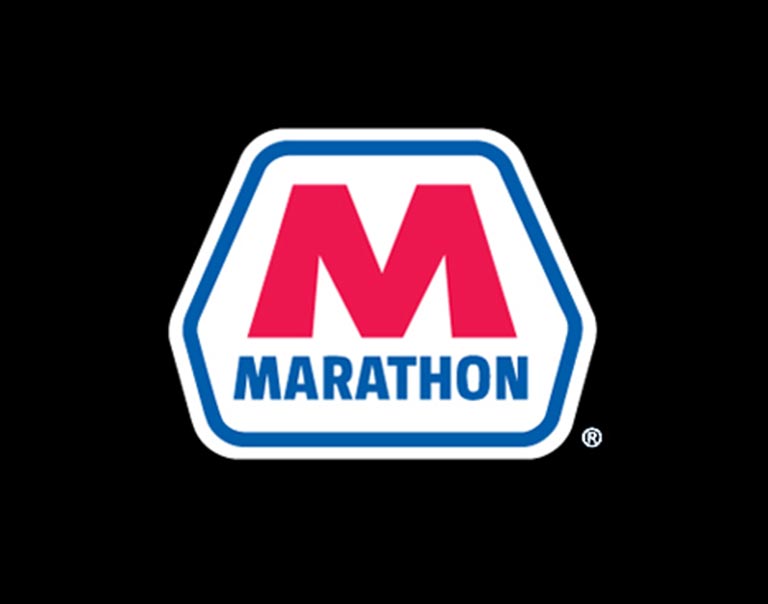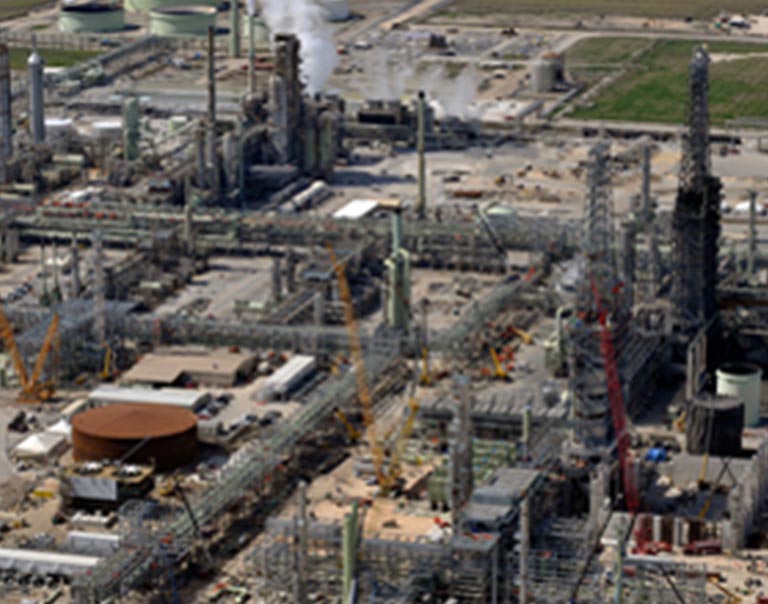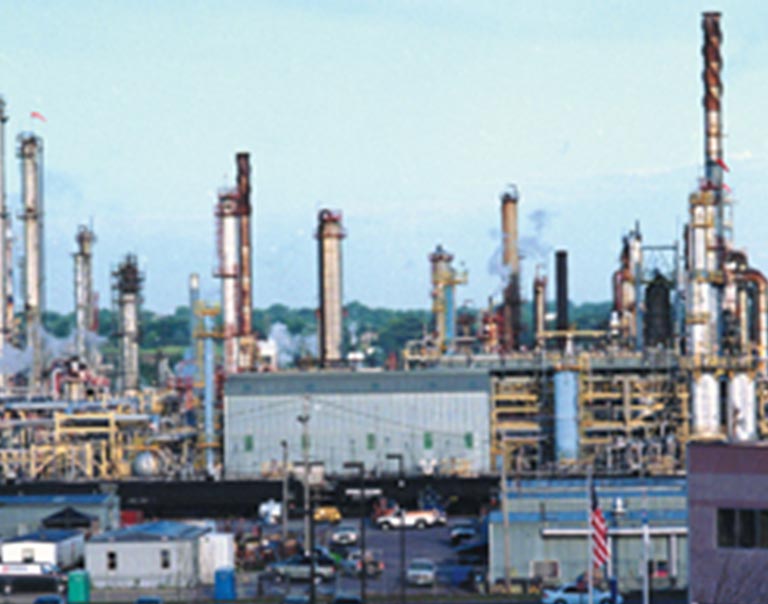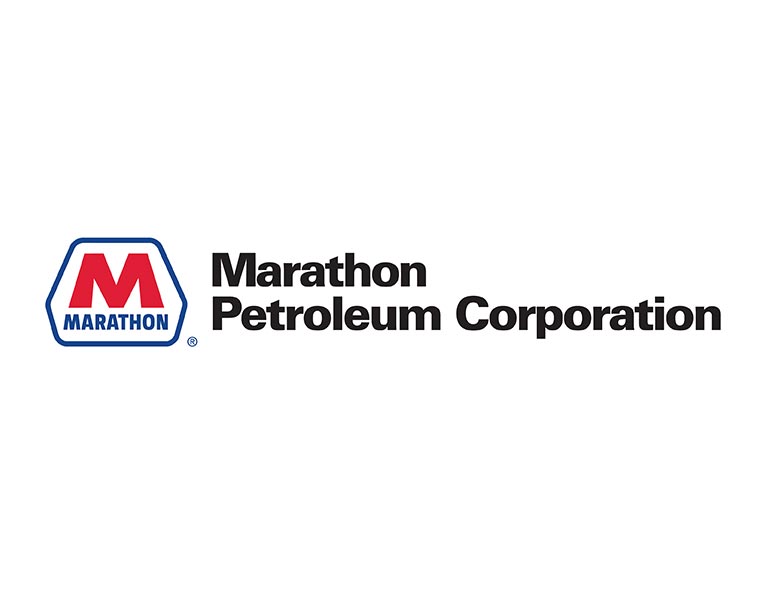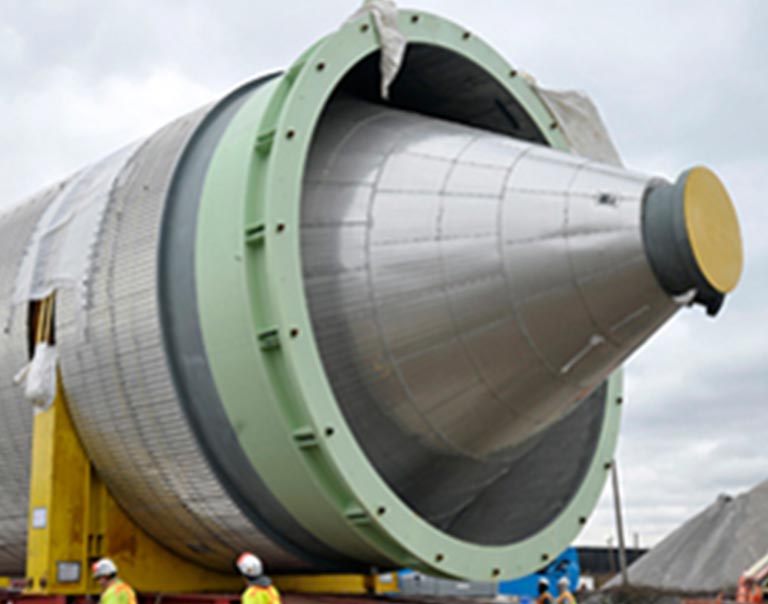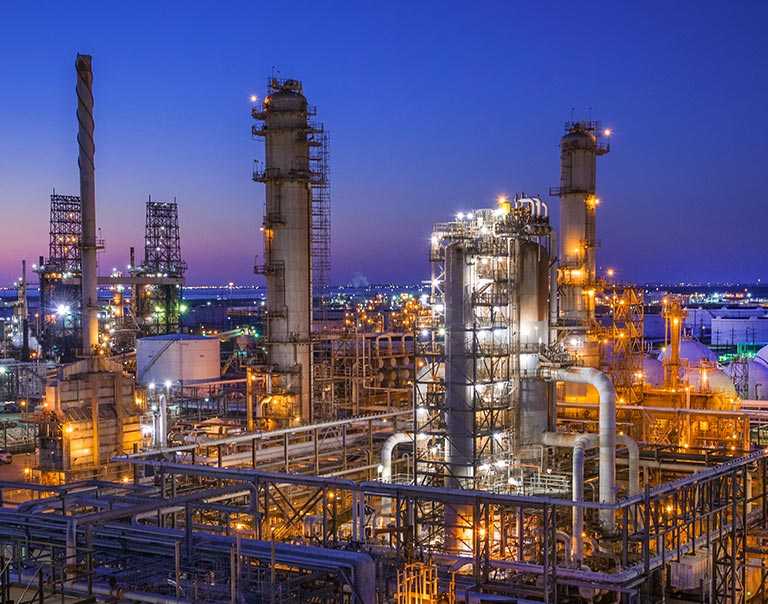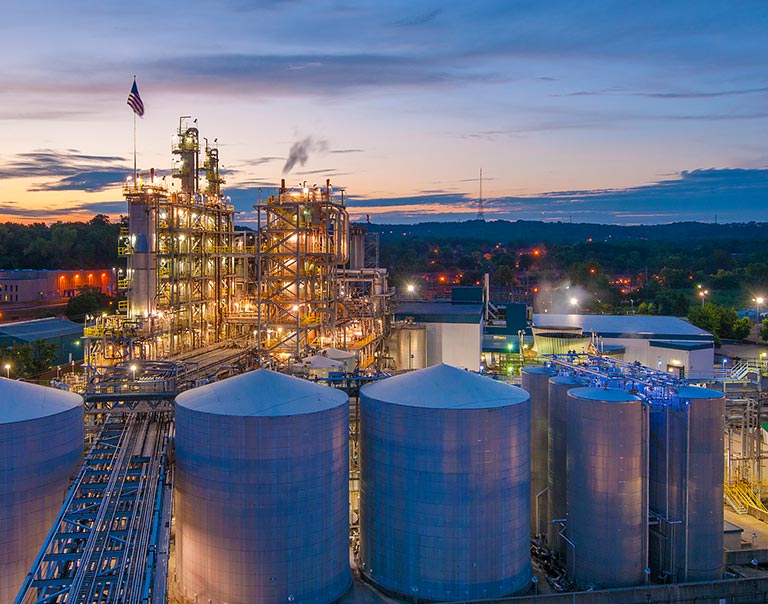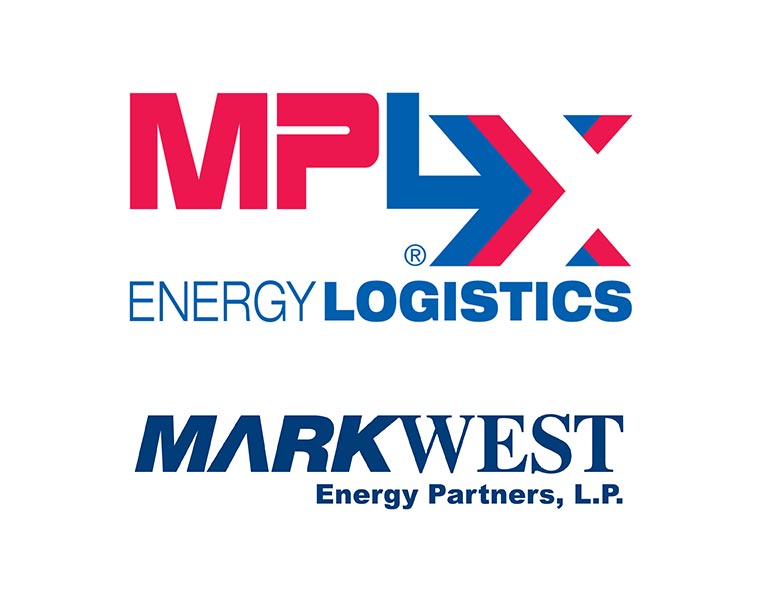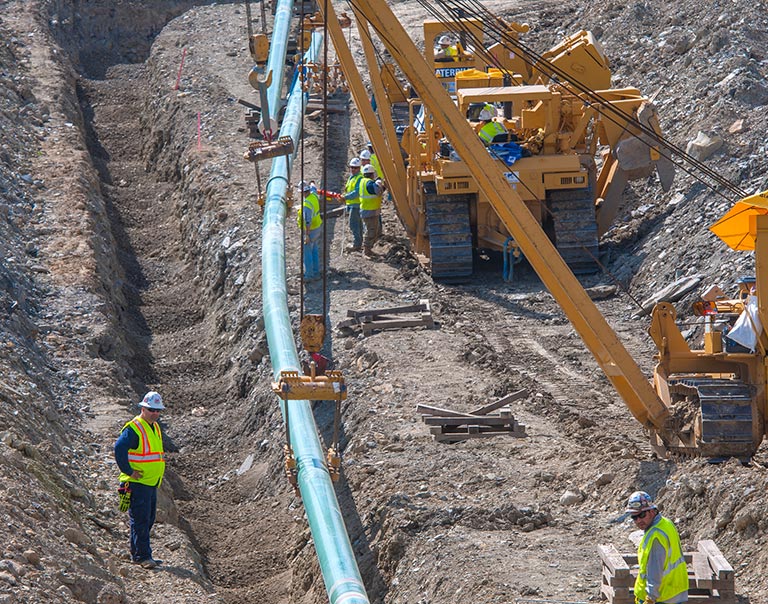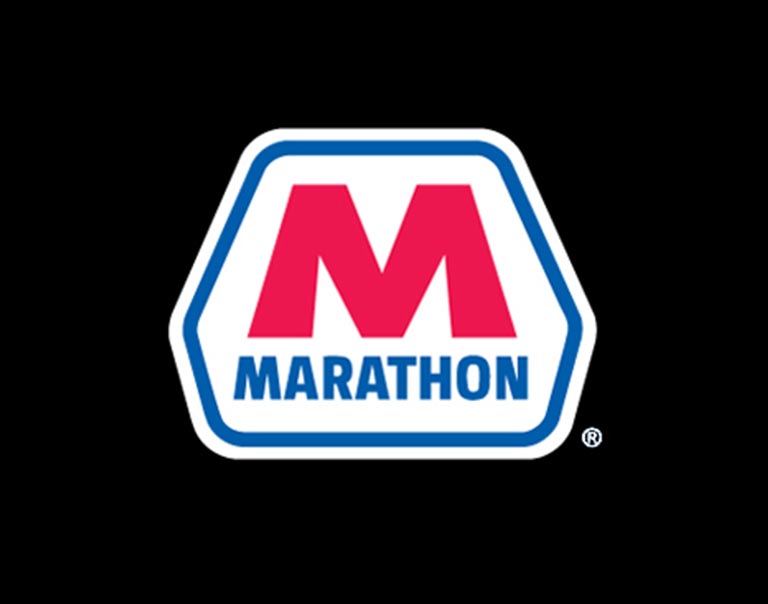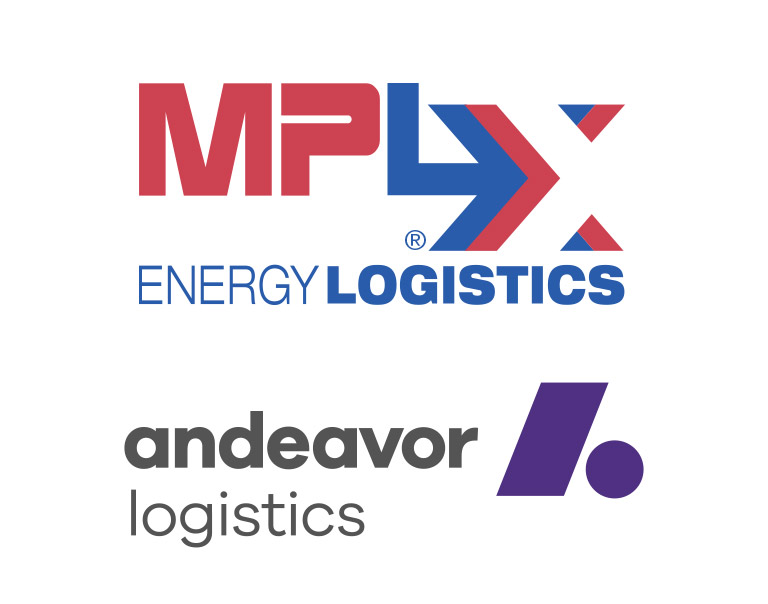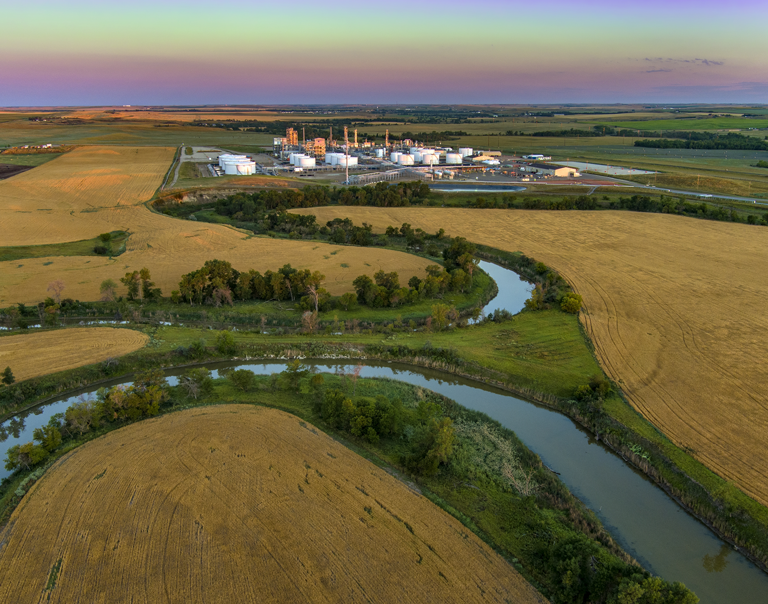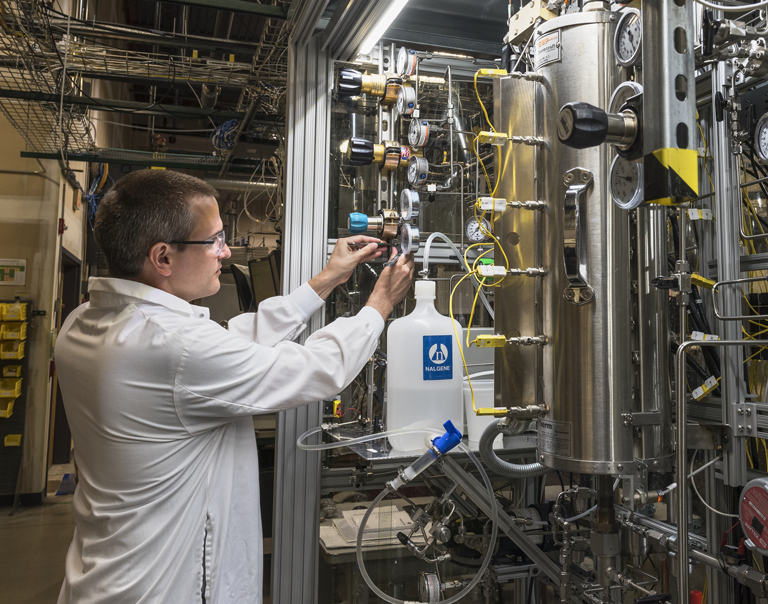Since its humble beginnings in 1887, Marathon Petroleum Corporation has evolved and so have Marathon stations. Learn more about us corporately and dive into our dynamic history.
A Brand with Endurance
Our Company
Marathon Petroleum Corporation (MPC) is a leading, integrated, downstream energy company headquartered in Findlay, Ohio. The company operates the nation’s largest refining system. MPC’s marketing system includes branded locations across the United States, including Marathon brand retail outlets.
MPC also owns the general partner and majority limited partner interest in MPLX LP, a midstream company that owns and operates gathering, processing, and fractionation assets, as well as crude oil and light product transportation and logistics infrastructure.
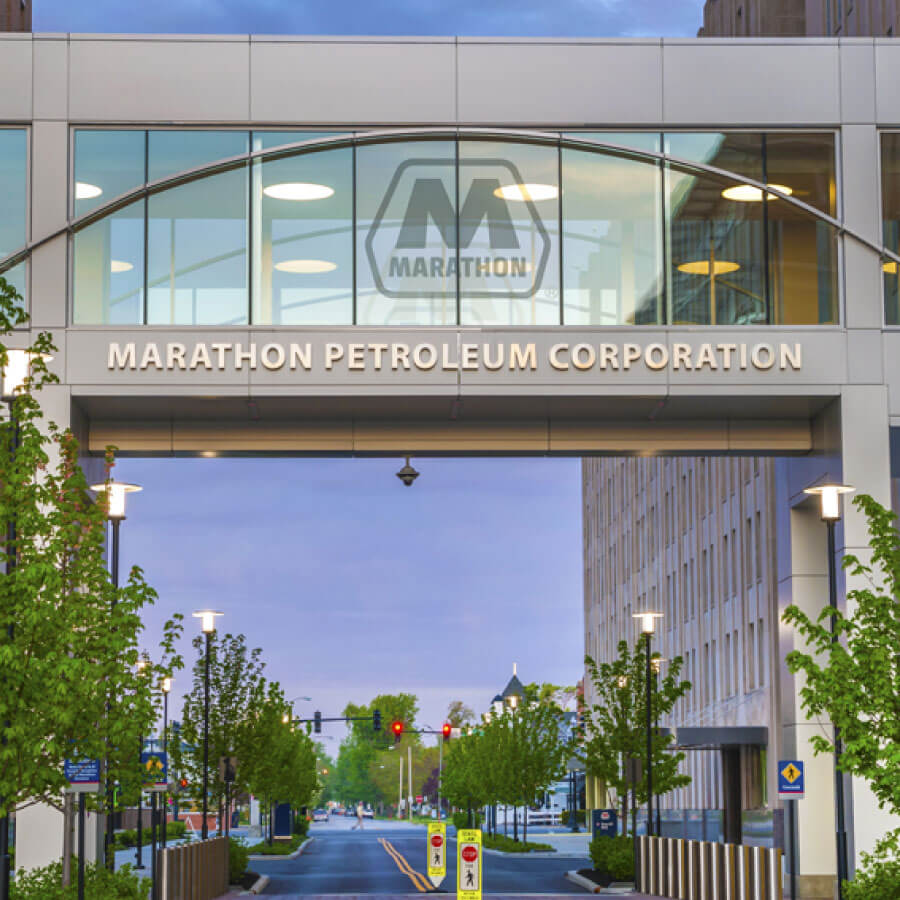
Through the Years
1887
The Ohio Oil Company was founded in Lima, Ohio
1889
John D. Rockefeller’s Standard Oil purchased Ohio Oil. Corporate headquarters were moved to Findlay, Ohio.
1906
Ohio Oil’s first pipeline was constructed, running from Martinsville, Illinois, to Preble, Indiana.
1911
The Supreme Court broke up the Standard Oil trust. Ohio Oil was again an independent company.
1915
Ohio Oil created Illinois Pipe Line Company and immediately spun the company off.
1924
Lincoln Oil Refining Company was purchased, which included the Robinson refinery in Illinois and 17 Linco brand service stations in Robinson and Terre Haute, Indiana.
1930
Ohio Oil purchased Transcontinental Oil. The deal brought oil and natural gas wells, three refineries, bulk storage plants and filling stations. It included the Marathon product name, the Pheidippides Greek runner trademark, and the “Best in the Long Run” slogan.
Ohio Oil Company’s stock was publicly traded on the New York Stock Exchange for the first time.
1945
Thermal cracking gave way to the new process of catalytic “cat” cracking, increasing refinery yield. Ohio Oil began a highly successful campaign extolling the virtues of Marathon “Cat” gasoline.
1946
Ohio Oil’s Marathon service stations took on a new look, offering tires, batteries and accessories, and auto maintenance in the service bays. “Best in the Long Run” became a familiar site to motorists in the Midwest.
1953
The Ohio Oil Company was the first to introduce the metal credit plate, the precursor to the credit card, to build loyalty.
1959
The Aurora Gasoline Company was purchased. The acquisition included 680 service stations featuring Speedway 79 Stratofuel.
The Detroit refinery was purchased from late philanthropist Max Fisher.
1960
Marathon Pipe Line Company was created as a subsidiary.
1962
The Ohio Oil Company officially changed its corporate name to Marathon Oil Company in conjunction with the company’s 75th anniversary.
The Pheidippides trademark ended its 31-year run.
The Plymouth Oil Company was acquired, along with the Texas City refinery, which launched the company into the wholesale gasoline business.
1976
Emro Marketing was incorporated by Marathon Oil to oversee company-operated service stations. The name Emro came from adding an E to the New York Stock Exchange symbol for Marathon Oil (MRO).
1977
Marathon acquired the Garyville refinery in Louisiana.
1982
Marathon resisted a hostile takeover attempt by Mobil Oil Corporation and negotiated the sale of the company to U.S. Steel Corporation.
1990
The corporate headquarters for Marathon Oil Company moved to Houston, Texas.
1991
Emro moved into new corporate headquarters in Enon, Ohio.
1997
Emro was first recognized as Convenience Store Chain of the Year.
1998
Marathon Oil and Ashland Inc. formed a joint venture named Marathon Ashland Petroleum LLC, which added refineries in Catlettsburg (Kentucky), Canton (Ohio) and St. Paul Park (Minnesota) as well as a private inland barge fleet.
Emro Marketing Company and Super America Group merged to form Speedway SuperAmerica LLC.
2003
Cardinal Pipeline construction was completed in central Ohio.
2004
Ashland Inc. transferred its interest in Marathon Ashland Petroleum to Marathon Oil.
2009
A $3.2 billion major expansion project at the Garyville refinery was completed.
2010
The St. Paul Park refinery and Speedway SuperAmerica assets in Minnesota were sold.
2011
On July 1, 2011, Marathon Petroleum Corporation (MPC) became a stand-alone refining, marketing and transportation company, headquartered in Findlay, Ohio.
2012
MPC completed the Detroit Heavy Oil Upgrade Project at the Detroit refinery.
MPC formed MPLX LP, a midstream master limited partnership
2013
MPC purchased the Galveston Bay refinery in Texas City, Texas.
2014
MPC purchased the Cincinnati biodiesel facility. The plant broadened MPC’s renewable fuels portfolio.
MPC acquired Hess retail operations and related assets. The acquisition included 1,256 stores in 16 states
2015
MPLX acquired MarkWest Energy Partners L.P., further growing MPLX’s midstream business.
2016
MPLX completed construction of the Cornerstone Pipeline in Ohio.
2018
Marathon Petroleum Corporation acquired Andeavor, which extended its operations nationwide. Included in the acquisition were 10 refineries: Anacortes (Washington), Dickinson (North Dakota), El Paso (Texas), Gallup (New Mexico), Kenai (Alaska), Los Angeles (California), Mandan (North Dakota), Martinez (California), Salt Lake City (Utah) and St. Paul Park (Minnesota).
Through the acquisition, MPC also took ownership of the general partner of Andeavor Logistics, approximately 3,300 retail stations, the ARCO® trademark, and wholly owned subsidiary Virent.
2019
MPLX LP acquired Andeavor Logistics LP, creating a leading, large-scale, diversified midstream company.
2020
MPC began production at its Dickinson, North Dakota, renewable diesel facility, the second largest in the United States, after converting it from a petroleum refinery.
2021
MPC sold Speedway, the company-owned and operated retail transportation fuel and convenience store business.
Operations began at the Beatrice, Nebraska, pretreatment facility, which MPC acquired in 2020 to process advantaged feedstock for transport to MPC’s Dickinson, North Dakota, renewable diesel facility. MPC also converted its Cincinnati biodiesel facility to a renewable feedstock pretreatment facility; its startup occurred in January 2022.
MPC’s subsidiary Virent helped make aviation history by contributing to the creation of sustainable aviation fuel (SAF) for the very first commercial passenger flight fueled by 100% SAF in one engine.
MPLX’s three takeaway projects in the Permian Basin of West Texas – the Wink-to-Webster crude oil pipeline, Whistler natural gas pipeline and a natural gas liquids project – all were placed into service.
